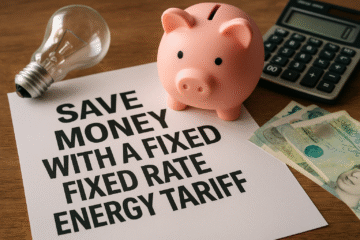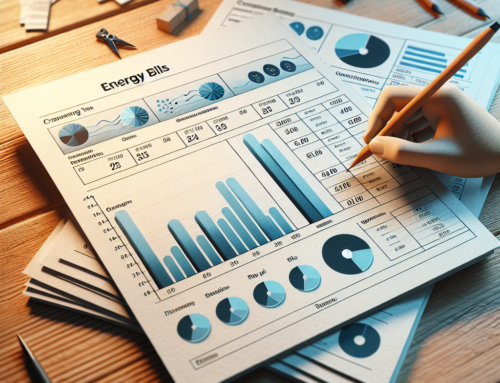Understanding your energy usage is the first step in making your home more energy efficient. By knowing how much energy you use and where it is being used, you can make informed decisions about how to reduce your energy consumption. One way to do this is by using a home energy monitor, which can track your energy usage in real time and provide you with valuable insights into where you can make improvements. Additionally, conducting a home energy audit can help you identify areas of your home that are using the most energy, such as outdated appliances or inefficient heating and cooling systems. By understanding your energy usage, you can take proactive steps to reduce your carbon footprint and save money on your energy bills.
Another important aspect of understanding your energy usage is knowing the impact it has on the environment. By being aware of how much energy you use and the sources of that energy, you can make more sustainable choices that benefit the planet. For example, if you discover that a significant portion of your energy comes from non-renewable sources, you may want to consider switching to a renewable energy provider or investing in solar panels for your home. By understanding your energy usage and its environmental impact, you can make more informed decisions that contribute to a greener, more sustainable future.
Insulating Your Home
Insulating your home is a crucial step in making it more energy efficient. Proper insulation helps to keep the heat in during the winter and out during the summer, reducing the need for excessive heating and cooling. One of the most effective ways to insulate your home is by adding insulation to your walls, attic, and floors. This can significantly reduce heat loss and improve the overall comfort of your home. Additionally, sealing any air leaks around windows, doors, and other openings can further improve the insulation of your home and prevent energy wastage.
Another important aspect of insulating your home is choosing the right materials. There are a variety of insulation materials available, each with its own benefits and drawbacks. For example, fibreglass insulation is a popular choice for its affordability and effectiveness, while spray foam insulation offers superior air sealing properties. By understanding the different types of insulation materials and their respective R-values, you can make informed decisions about which materials are best for your home. Ultimately, proper insulation is essential for reducing energy consumption and creating a more comfortable living environment.
Using Efficient Heating Methods
Using efficient heating methods is essential for reducing energy consumption and keeping your home warm during the colder months. One way to do this is by upgrading to a high-efficiency furnace or boiler, which can significantly reduce your energy usage and lower your heating bills. Additionally, using a programmable thermostat can help you regulate the temperature in your home more effectively, ensuring that you only heat the space when it is necessary. Another efficient heating method is using zone heating, which allows you to heat specific areas of your home as needed, rather than heating the entire space at once.
Another important aspect of using efficient heating methods is maintaining your heating system properly. Regular maintenance, such as cleaning or replacing air filters, can improve the efficiency of your heating system and prolong its lifespan. Additionally, ensuring that your home is properly insulated and sealed can help to retain heat and reduce the workload on your heating system. By using efficient heating methods and maintaining your heating system, you can reduce your energy consumption and create a more comfortable living environment.
Dressing for the Weather
Dressing for the weather is an effective way to reduce your reliance on heating and cooling systems and lower your energy consumption. During the colder months, wearing warm clothing and using blankets can help you stay comfortable without cranking up the heat. Additionally, wearing slippers or socks can keep your feet warm and prevent the need for excessive heating. Layering clothing is another effective way to stay warm without using too much energy, as it traps heat close to the body and provides insulation against the cold.
In warmer weather, dressing in lightweight, breathable clothing can help you stay cool without relying on air conditioning. Wearing light colours can also reflect sunlight and heat away from the body, keeping you cooler without needing to lower the temperature indoors. Additionally, using ceiling fans or portable fans can help circulate air and create a cooling effect without using as much energy as air conditioning. By dressing for the weather and making smart clothing choices, you can reduce your energy consumption and stay comfortable throughout the year.
Maximising Natural Light
Maximising natural light in your home is an effective way to reduce your reliance on artificial lighting and lower your energy consumption. One way to do this is by strategically placing mirrors around your home to reflect natural light into darker areas. Additionally, keeping window treatments open during the day can allow sunlight to enter your home and illuminate the space without needing to turn on lights. Using light-coloured paint on walls and ceilings can also help to reflect natural light and brighten up your home without using additional lighting.
Another important aspect of maximising natural light is choosing the right window treatments. Using sheer curtains or blinds can allow natural light to filter into your home while still providing privacy. Additionally, installing skylights or solar tubes can bring natural light into areas of your home that may not have access to windows. By maximising natural light in your home, you can reduce your energy consumption and create a brighter, more inviting living space.
Monitoring Your Energy Usage
Monitoring your energy usage is an important part of maintaining an energy-efficient home. By keeping track of how much energy you use on a daily or weekly basis, you can identify patterns and make adjustments to reduce your consumption. One way to do this is by using a smart meter, which provides real-time information about your energy usage and allows you to see how different appliances and behaviours impact your overall consumption. Additionally, using energy monitoring apps or devices can help you track your usage and set goals for reducing it over time.
Another important aspect of monitoring your energy usage is understanding peak times of consumption. By knowing when you use the most energy, you can make changes to reduce your usage during those times, such as running appliances during off-peak hours or adjusting your thermostat settings. Additionally, monitoring your energy usage can help you identify any abnormal spikes in consumption that may indicate a problem with an appliance or system in your home. By staying vigilant about monitoring your energy usage, you can make informed decisions about how to reduce your consumption and save money on your energy bills.
Seeking Financial Assistance
Seeking financial assistance for making your home more energy efficient can help offset the costs of upgrades and improvements. There are a variety of financial assistance programmes available to homeowners looking to reduce their energy consumption, such as rebates, grants, and low-interest loans. These programmes are often offered by government agencies or utility companies and can help cover the costs of things like insulation upgrades, high-efficiency appliances, or renewable energy installations.
Another option for seeking financial assistance is through energy efficiency financing programmes. These programmes offer low-interest loans specifically for making energy-efficient upgrades to homes, such as installing solar panels or upgrading to high-efficiency heating systems. Additionally, some utility companies offer on-bill financing options that allow homeowners to pay for energy-efficient upgrades over time through their monthly utility bills. By seeking financial assistance for making your home more energy efficient, you can make improvements that benefit both the environment and your wallet.
In conclusion, understanding and reducing your energy usage is essential for creating a more sustainable and cost-effective home environment. By insulating your home, using efficient heating methods, dressing for the weather, maximising natural light, monitoring your energy usage, and seeking financial assistance, you can make significant strides towards reducing your carbon footprint and saving money on your energy bills. Making these changes not only benefits you as a homeowner but also contributes to a greener future for our planet.





